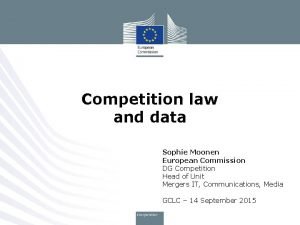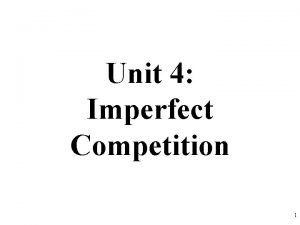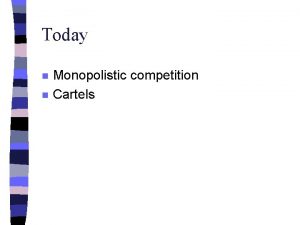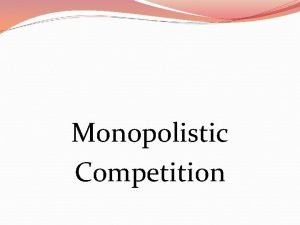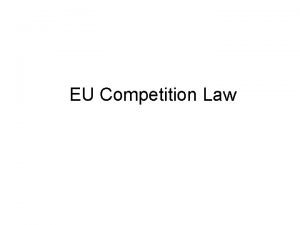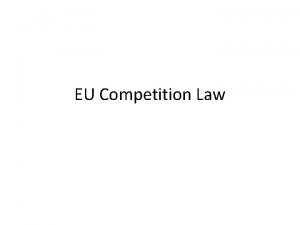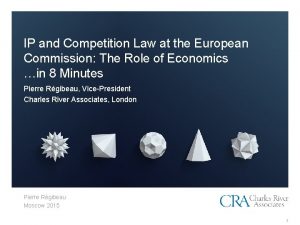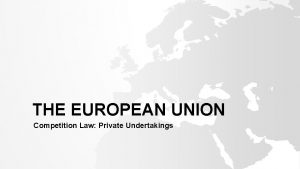Competition law and data Sophie Moonen European Commission







- Slides: 7

Competition law and data Sophie Moonen European Commission DG Competition Head of Unit Mergers IT, Communications, Media GCLC – 14 September 2015

Personal data and "big data" • Personal data – any information that can identify individuals directly or indirectly • "Big data" – the collection, storage and analysis of very large datasets that can reveal patterns of information that would not be visible from smaller datasets or individual data points • Data can be viewed as the raw material of the information economy Ø Firms have built businesses around the collection and use of data Ø Data can be used to improve goods and services – by allowing understanding consumer behaviour and preferences (e. g. software, search, social networking, targeted advertising) Ø In two-sided markets - "personal data" as currency for free 2 services (e. g. search or social networking)

Competition policy and data protection • "Privacy violations" should be tackled primarily by data protection policy – Asnef antitrust judgment (2006) – competition policy not well placed to tackle these issues • But the use of big data and personal data can be relevant to competition cases: – Big data as an "asset": consistent practice of checking whether the merger of "big data" tools or datasets would give the merged entity an insurmountable advantage over competitors (e. g. Google/Doubleclick) – Restrictions on data portability can increase switching costs and entry barriers – Personal data as "currency" and/or privacy as a dimension of 3 competition/product quality

"Big data" cases Essentially merger cases: • Google/Doubleclick (2008) • Microsoft/Yahoo! Search Engine (2010) • Telefonica/Vodafone/Everything Everywhere (2012) • Publicis/Omnicom (2014) • Facebook/Whats. App (2014) 4

Facebook/Whats. App – data as "asset"? • Facebook provides online targeted advertising services based on analysis of data collected from Facebook users • Whats. App does not collect data valuable for advertising purpose no combination of datasets • The Commission however assessed whether post-merger Facebook would collect data from Whats. App users (which are also Facebook users) and gain an advantage for targeted advertising − Unclear whether Facebook would have the incentive to do so − In any event, the Commission found no competition concerns even if Facebook would use Whats. App as a new source of user data, as there remain a sufficient alternative providers of online advertising services with access to user data valuable for advertising purposes 5

Facebook/Whats. App – privacy as dimension of product quality? • The Commission found that privacy was one of many parameters of competition between consumer communications apps along with other parameters such as price, reliability of the service, functionalities offered, size of the network, trendiness, etc. • The majority of consumer communication apps do not compete (mainly) on privacy features – with some exceptions such as apps offering increased security of communications like Threema or Telegram • The Commission's decision is without prejudice to the application of EU data protection rules to any privacyrelated concerns flowing from the increased concentration of data within the control of Facebook 6

Conclusion • Big data relevant for competition assessment in digital economy • Merger enforcement has the potential to complement data protection law where protecting competition includes protecting privacy as an important parameter of competition/privacy concerns tied to a significant impact on effective competition • Competition tools are "fit for purpose"; but this requires a very fact-specific assessment linked to the features of the market; the position of the players; the barriers to entry; etc. • So far no case of anti-competitive use of big data or personal data, but this cannot be ruled out 7
